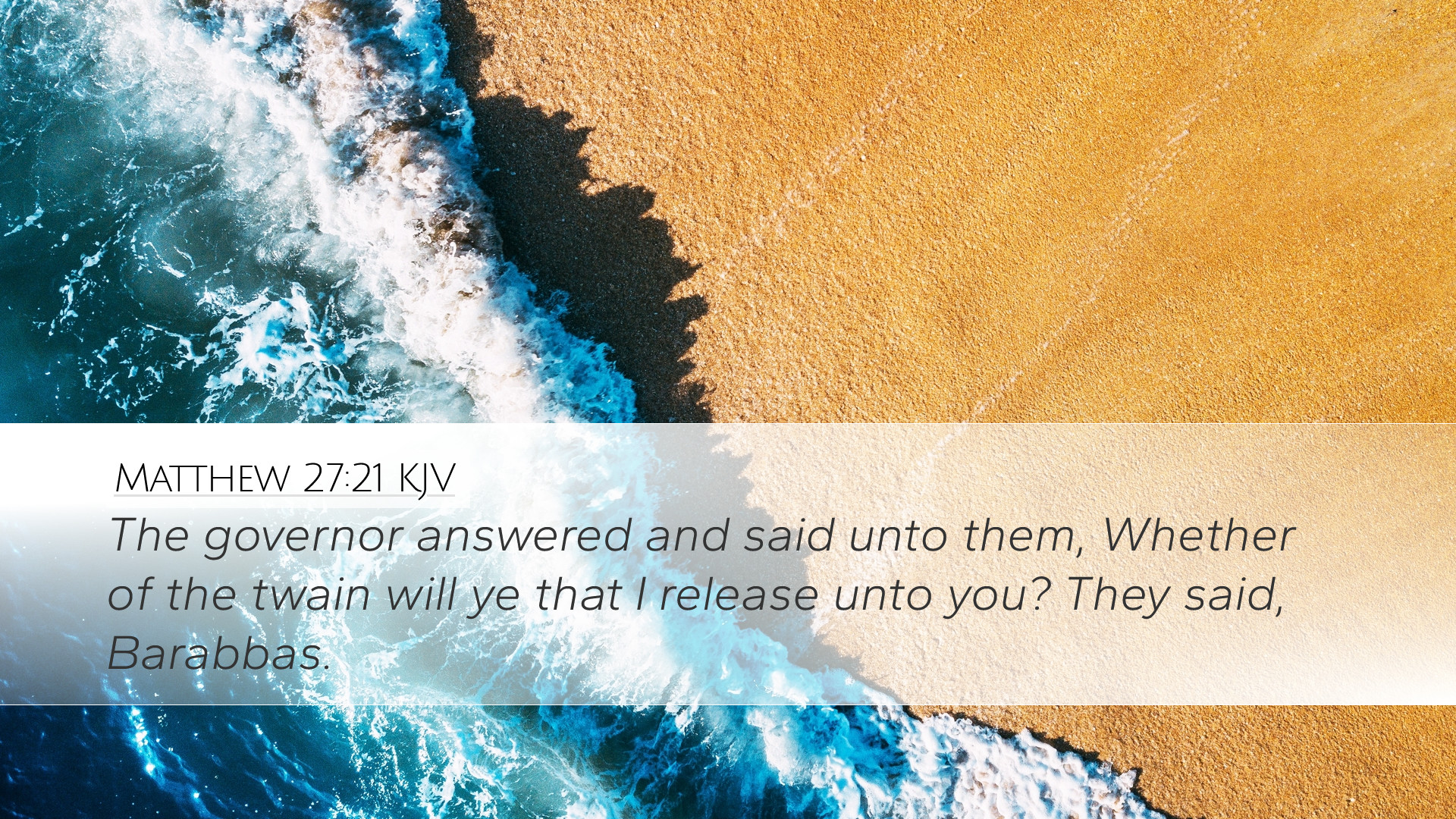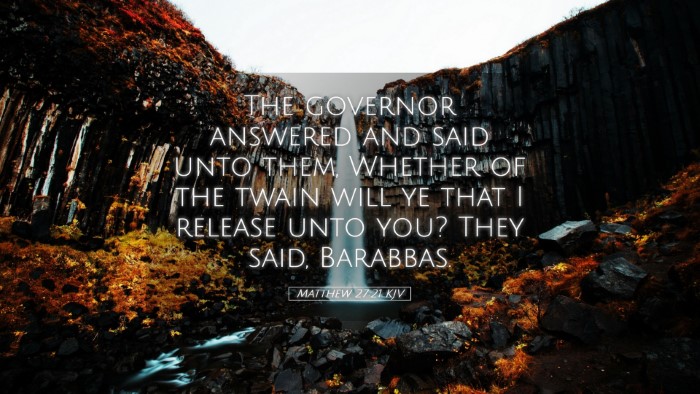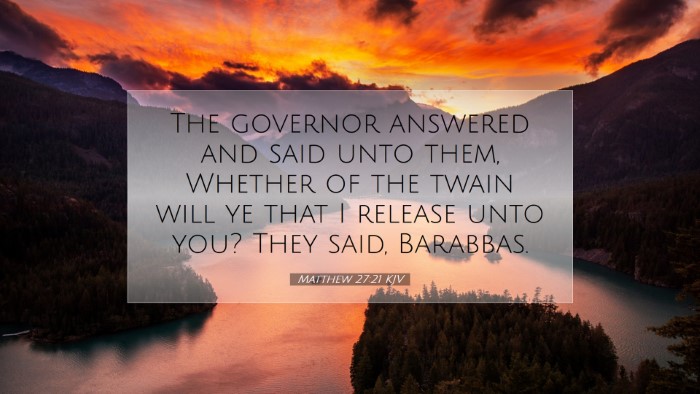Commentary on Matthew 27:21
Matthew 27:21: "The governor answered and said unto them, Whether of the twain will ye that I release unto you? They said, Barabbas."
Context of Matthew 27:21
This verse occurs in the narrative of Christ's passion, particularly during the trial before Pontius Pilate. The choice between Jesus and Barabbas holds significant theological and social implications that deserve detailed examination.
The Historical Setting
The backdrop of this incident is the Roman governance over Judea and the tension between the Jewish populace and their occupiers. Given this, Pilate's role as the Roman governor required him to navigate political and social pressures carefully.
Analysis of the Choice Presented
In the verse, we see Pilate presenting the crowd with the choice between Jesus, who is perceived as a teacher and miracle worker, and Barabbas, a notorious criminal. The crowd's choice of Barabbas can be examined from several angles.
- Symbol of Rebellion: Barabbas represents the revolutionary spirit against Roman rule. His release illustrates the people's desire for physical liberation rather than spiritual salvation.
- Fulfillment of Prophecy: This moment signifies the fulfillment of prophetic scripture, reflecting the rejection of the Messiah by His own people, an event foretold in the Old Testament.
- Human Nature's Preference: The choice reflects the inherent human tendency to choose what is familiar and tangible, represented by Barabbas, over the spiritual and divine, embodied by Jesus.
Theological Implications
The rejection of Jesus in favor of Barabbas is profoundly significant. It illustrates the depravity of humanity and the depth of sin that leads them away from God’s truth.
As Matthew Henry notes, “This was a striking display of the madness of the people, who preferred a thief and murderer to the Son of God.” The text invites critical reflection on how often choices are made based on societal pressures rather than divine truth.
Insights from Albert Barnes
Albert Barnes emphasizes the pivotal nature of this choice: "The crowd's decision was a tendency to reject divine mercy for temporal relief, illustrating mankind’s perpetual struggle with sin.” The act of choosing Barabbas signifies a preference for earthly politics over heavenly righteousness.
Barnes argues that this reflects a larger truth about humanity's nature, resonating with the theme of rebellion against God’s authority.
Adam Clarke's Commentary
Adam Clarke notes the contrasts present in the decision faced by the crowd: “Barabbas was a man full of rebellion, whereas Jesus was filled with compassion and love.” This clear contrast urges the reader to examine their own choices and allegiances, pondering oftentimes whether they side with Barabbas in their own lives.
Clarke also discusses the irony that the crowd, who had been followers of Jesus, now chose a criminal. It reflects the abandonment of moral clarity in the pursuit of desire, showcasing how quickly human nature can sway under pressure.
Application for Today
In contemporary society, the question posed by Pilate remains relevant. Each individual is frequently placed in positions where they must choose between Christ and other allegiances or desires.
- Choices in Leadership: The contemporary world provides similar choices in leadership and truth. How often do we choose leaders who, like Barabbas, appeal to our immediate desires rather than leaders who embody Christ-like virtues?
- Ethical Dilemmas: In facing ethical dilemmas, believers must discern whether they are advocating for justice and mercy as Christ did, or succumbing to the pressures of societal norms.
- Personal Reflection: This narrative invites personal reflection: In what ways do we choose Barabbas in our own lives, opting for comfort over conviction?
Conclusions
Matthew 27:21 presents a powerful moment that reverberates through the corridors of history and modernity, calling for deep theological reflection. The decision to release Barabbas rather than Jesus serves as a poignant reminder of human tendency toward sin and rebellion.
For pastors, theologians, and students alike, this verse calls for an examination of faith, morality, and the integrity of our choices in aligning with Christ, while simultaneously addressing the communal pressures that influence those choices.


